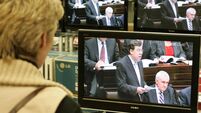Letters to the Editor: Tech giants must be regulated

'The main stakeholders responsible for implementing effective policies to protect children from the harmful impact of marketing should be trusted public authorities.' Picture: iStock
The column 'Richard Hogan: For too long, social media operated outside the law, and our children have suffered’ (June 5) spoke of the launch of the Online Safety Codes by Coimisiún na Meán, noting: “We need robust legislation to protect children and to end the era of self-regulation of ‘big tech’.”
But one issue that seems to be glossed over in the discourse on the codes is that while we look to end the self-regulation of ‘big tech’, we are simultaneously risking leaving the regulation of large swathes of the content children do see to self-regulatory industry bodies.











